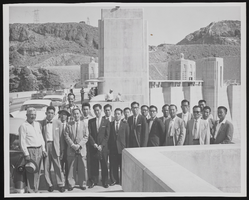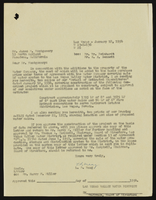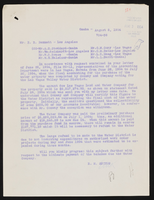Search the Special Collections and Archives Portal
Search Results

Seventeen members of an electric power study group from Korea: photographic print
Date
Archival Collection
Description
Image

Transcript of an interview with Treva Roles by Judy Harrell on February 12, 2014
Date
Archival Collection
Description
Text

Transcript of an interview with Karen Sarret-Bartolo by Judy Harrell on November 25, 2013
Date
Archival Collection
Description
Text

Transcript of interview with Beth Francis by Patricia Van Betten, May 31, 2004
Date
Description
Text
Jamey Stillings Photographs
Identifier
Abstract
The Jamey Stillings Photographs (2009-2024) is primarily comprised of photographs taken by professional photographer, Jamey Stillings documenting various infrastructure projects in the region. The Mike O’Callaghan-Pat Tillman Memorial Bridge project at the Hoover Dam depicts the construction of the Mike O’Callaghan-Pat Tillman Memorial Bridge from 2009 to 2012. The Ivanpah Solar Electric Generating System project depicts aerial views of Ivanpah Solar in the Mojave Desert of California from 2010 to 2014. The Crescent Dunes Solar project consists of a range of aerial and ground-based work documenting SolarReserve's Crescent Dunes Solar near Tonopah, Nevada, from 2014 to 2015. The
Archival Collection





